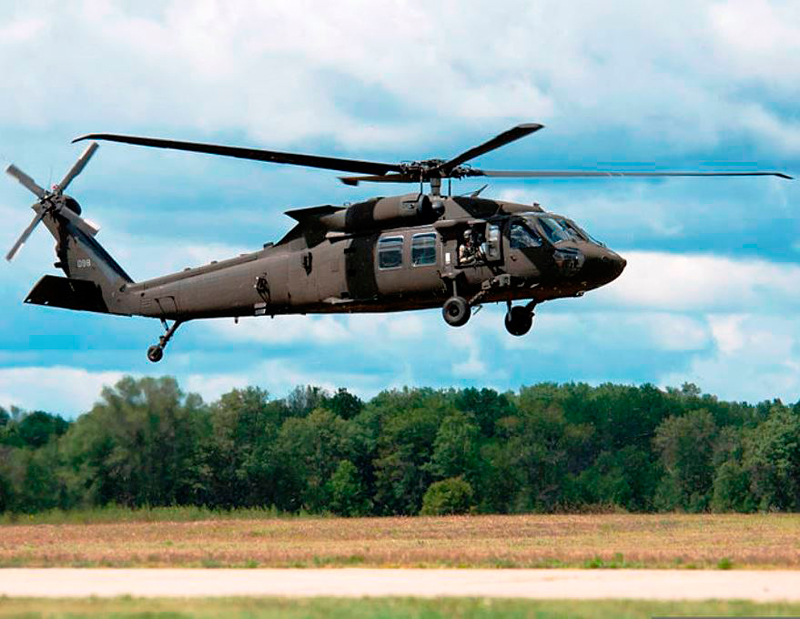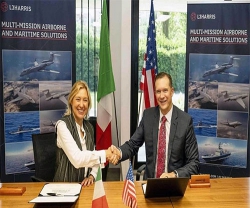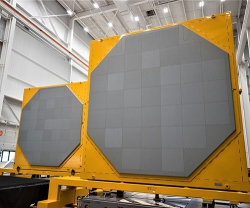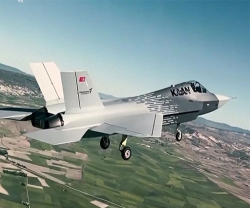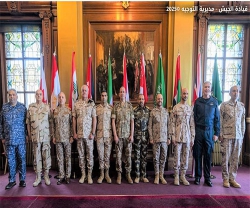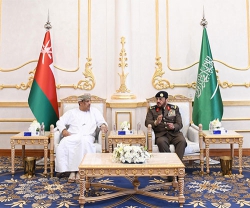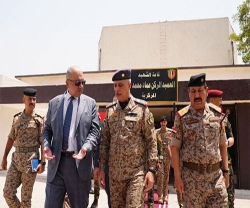President Donald Trump approved a colossal defense policy bill earlier this week that authorizes a top-line budget of $717 billion to cover a litany of defense spending, CNBC reported.
Trump traveled to Fort Drum, home of the Army’s 10th Mountain Division, in upstate New York to sign the bill, which was named in honor of former Vietnam prisoner of war Senator John McCain, R-Ariz., who is battling brain cancer.
The 2019 National Defense Authorization Act, or NDAA, includes $616.9 billion for the Pentagon's base budget, $69 billion for overseas contingency operations funding and $21.9 billion for nuclear weapons programs under the Energy Department. The NDAA is only half the process, since Congress must still pass a spending bill to fund specific priorities with the Defense Department.
“The National Defense Authorization Act is the most significant investment in our military and our war fighters in modern history. We are going to strengthen our military like never ever before and that's what we did,” Trump said.
Trump lauded the bill, saying it will give service members the “finest planes, and ships and tanks and missiles.”
The measure authorizes a 2.6% pay raise for troops - the largest in nearly a decade. It also delays the delivery of stealth fighter aircraft to Turkey and blunts Chinese investments by strengthening the Committee on Foreign Investment in the United States.
Here’s a breakdown of some of the big-ticket items the Pentagon is authorized to buy:
The NDAA allows $7.6 billion for 77 of Lockheed Martin’s F-35 Joint Strike Fighters. The fifth-generation stealth jet is made at a Lockheed facility in Fort Worth, Texas, and remains the Pentagon's most expensive weapons system.
The defense policy bill also bars the delivery of F-35 jets to fellow NATO member Turkey amid concerns over Ankara's desire to buy a Russian missile defense system.
Turkey, an F-35 program partner, is currently slated to receive two of the jets, the first of what Ankara hopes will be the start of a 100-strong fleet.
The legislation authorizes $85 million for UH-60M Black Hawk utility helicopters. The choppers are made by Sikorsky, a unit of Lockheed Martin, at a facility in Stratford, Connecticut.
In March, Trump described Sikorsky’s Black Hawk helicopters as “fighting machines” and the “most advanced helicopters in the world.”
Congress also agreed to fully fund the U.S. Air Force’s new long-range stealth B-21 bomber. America's next heavy bomber is named "Raider" and made by Northrop Grumman.
Congress approved $1.56 billion for three littoral combat ships, even though the Navy only requested one. The bill also authorizes the fourth Ford-class aircraft carrier, six icebreakers, and a Columbia-class ballistic missile submarine.
In all, 13 new warships were approved for the coming fiscal year.
The NDAA authorizes $225.3 million for Stryker A1 combat vehicles and supports efforts to modernize the Army's armored combat vehicles, which includes: 135 M1 Abrams tanks, 60 Bradley fighting vehicles, 197 armored multipurpose vehicles, 38 improved recovery vehicles, and 3,390 joint light tactical vehicles.
The legislation also adds $140 million to the Missile Defense Agency for development of critical directed energy and space sensing projects as well as hypersonic defense capabilities.
The Army’s efforts to integrate its Patriot and Terminal High Altitude Area Defense, or THAAD missile defense systems, also gets $284 million.

